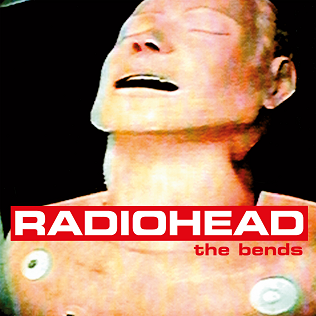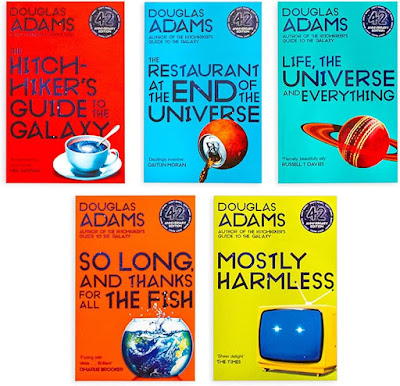I was inspired by a podcast called The 500 hosted by New York-based comedian Josh Adam Meyers. His goal, and mine, is to explore Rolling Stone Magazine's 2012 edition of The 500 Greatest Albums of All Time.
Album: #162
Album Title: OK ComputerArtist: RadioheadGenre: Alternative Rock, Art RockRecorded: Three Studios in the London Region of England
Released: May, 1997My age at release: 31
How familiar was I with it before this week: QuiteIs it on the 2020 list? Yes, at #42, elevating 120 spots
Song I am putting on my Spotify Playlist: Paranoid AndroidUniversity destroyed my love of reading.
Okay, that is an unfair generalization that lacks subtext. More specifically, a second-year English course at King's College (Western University) called "The Novel" negatively impacted the pleasure I used to get when reading. Since then, I have struggled to read for pleasure and relaxation.
 |
Silverwood House, on the campus of King's College, Western
University (London, Ontario). My class was in a basement lecture hall. |
The trauma came with the pacing of the course, which required students to read, digest, discuss and write about classic works of fiction at breakneck speed. We kicked off September with Don Quixote. Often considered the first modern novel, it is a 1,000-page tome full of rich characters and captivating themes. I was engrossed. However, after four or five classes discussing the Cervantez classic, the professor reminded us that we would be examining Henry Fielding's Tom Jones in two days.
"Two Days?!" I was still highlighting sections from the back half of Quixote! I panicked and that night at a local doughnut shop, fueled by caffeine and nicotine, I hastily began "reading" the comical and romantic adventures of the eponymous hero in this 18th Century picaresque satire. Now, I say "reading", but this was expeditious skimming. I ripped through the 800-plus pages with my highlighter and a copy of Cole's Notes by my side.
NOTE: Cole's was a Canadian bookstore chain (now absorbed by Indigo Books) that released study guides providing summaries and analysis of literary works. (Some readers may be more familiar with the U.S. equivalent – Cliff’s or Spark’s Notes.)
This is how the rest of the year would go. I wouldn't read the novels on the book list and I certainly did not have time to enjoy Emma, Madame Bovary, Pride and Prejudice, or Anna Karenina. Instead, I skimmed over these great works of literature, absorbing the basic plot while desperately finding something clever to say or write about each one...always with the help of a Cole's Notes guide by my side. It was the 1980s equivalent of an AI assistant, which I’ll admit I’ve used to help refresh my memory of these iconic novels… Indeed, I had completely forgotten about the term "picaresque satire" -- so don't give me too much credit for dropping that literary gem earlier.

.jpg) |
City Lights Book Shop has been a London, Ontario landmark
for 50 years, and I visited it several times a week through my teens. |
Paranoid Android was the lead single released from OK Computer, a record that marked a change in the musical direction of Radiohead. Their previous record, 1995's The Bends (#111 on The 500) was more conventional, with a focus on guitar driven tracks that followed a straightforward song structure. The lyrics explored, as was de rigueur at the time, personal, emotional and introspective themes. |
| Album cover for The Bends (1995). |
OK Computer was, by contrast, more experimental. It eschewed conventional song structures and incorporated electronic sounds, complex arrangements imbued with atmospheric soundscapes. The lyrics, while still personal, tackled broader and dystopian themes, including technology, modern life and societal alienation.Paranoid Android is a six-minute opus comprising sections and was written after songwriter and lead singer Thom Yorke had an unsettling experience in a Los Angeles bar in the mid-90s. The shy and reclusive Yorke was ill-prepared for the stardom that had come with the band's success. Out for a quiet drink, he found himself surrounded by people who were anxious for a conversation and a connection with the "rockstar". In a 2022 interview with Far Out Magazine, Yorke said: "Everyone was trying to get something out of me. I felt like my own self was collapsing in the presence of it, but I also felt completely, utterly part of it, like it was all going to come crashing down any minute. The people I saw that night were just like demons from another planet.”
The title, Paranoid Android, was taken from a book (and book series) that I loved when I was an avid teen reader -- The Hitchhiker's Guide To The Galaxy by Douglas Adams. The comedic science fiction novel series features a robot named Marvin (The Paranoid Android) who is programmed to provide assistance to crew members aboard the spaceship "The Heart of Gold". However, Marvin was a failed prototype, programmed with a Genuine People Personality (GPP) by fictional Sirius Cybernetics Corporation. The defective “character” suffers from severe depression and boredom because, in his words, he has a "brain the size of a planet" and is forced to spend his days completing mundane tasks despite having full knowledge of the universe -- including the insignificance of the creatures who inhabit it…carbon based lifeforms from Earth included.

 |
| The Hitchhikers Book Series (initially a trilogy in 1983 when I first read them. |
Some day, perhaps in retirement, I might take a university course similar to "The Novel", unburdened by twenty-something stresses and anxiety. How marvelous it would be to actually read Tom Jones for enjoyment, although I am uncertain of regaining my passion for fiction. The only fiction books I have read in the past few years were with my middle school students. Much like Marvin, I have been programmed to appreciate fiction for teachable moments or curriculum purposes. I still find myself skimming Young Adult fiction for literacy informed connections I can highlight in class.Maybe, if there is time before year's end, I can read my Grade 7s The Hitchhiker's Guide To The Galaxy...just for fun. No "Quick Writes", "Reader Response Sheets", "Comprehension Questions" or "Essays". Just an absurd story of galactic adventure and a paranoid robot named Marvin.

.jpg)




.jpg)


Great post- I could feel your anxiety from that course. I felt Thom's disdain of the common folk approaching him when I met them during this tour. Thankfully the memory that overshadowed that is Jonny Greenwood apologizing to me for Thom's attitude - "Somia. I'm sorry for behaving like stuck up f***ing rockstars". That line has stayed with me & the girl I was with all these later
ReplyDeleteYes, Thom seems a prickly one. I rewatched the "Meeting People Is Easy" documentary on the weekend. I can understand that the grind of a tour can get to you...but the grind of everything we do can get to you. Can I be a jerk to parents and kids because I have to keep answering questions about fractions every day.
Delete